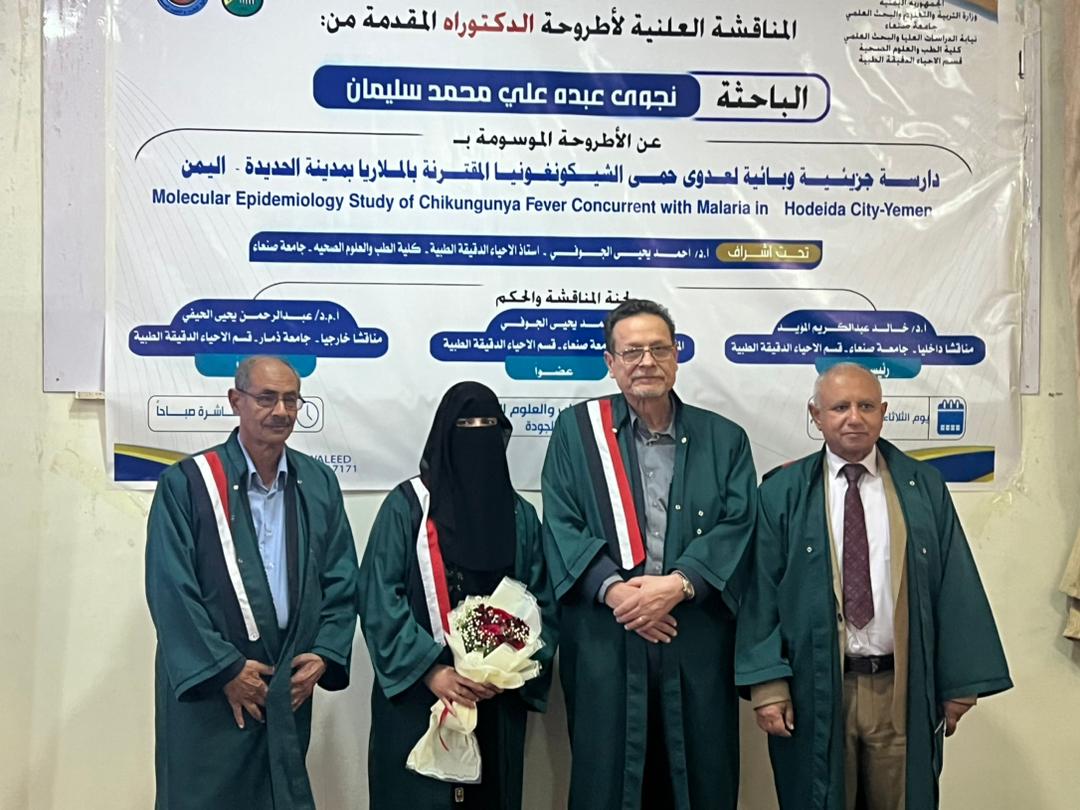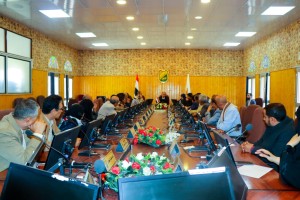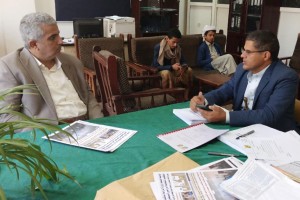Doctoral Degree for Researcher Najwa Abdu Ali Mohammed Suleiman in the Department of Microbiology, Faculty of Medicine and Health Sciences
- Categories Letters and Promotions - Graduate Studies, news, Regulations - Postgraduate Studies
- Date January 13, 2025

The researcher Najwa Abdu Ali Mohammed Suleiman was awarded a doctoral degree in the Department of Microbiology, specializing in Medical Microbiology and Immunology, at the Faculty of Medicine and Health Sciences, Sana’a University. Her dissertation, entitled “A Molecular Epidemiological Study of Chikungunya Fever Co-Infected with Malaria in Al-Hudaydah City, Yemen”, was defended on Tuesday, 1st Jumada Al-Akhirah, 1446 AH, corresponding to December 31, 2024.
The examination and judgment committee comprised:
Professor Ahmed Yahya Al-Joufi (Principal Supervisor and Committee Member),
Professor Khalid Abdulkarim Al-Muayyad (Internal Examiner and Committee Chair),
Dr. Abdulrahman Yahya Al-Haifi (External Examiner and Committee Member).
Study Objectives and Findings
The dissertation aimed to determine the prevalence of Chikungunya Fever co-infected with Malaria among febrile patients using molecular techniques in Al-Hudaydah City, Yemen. It also evaluated the diagnostic methods used for chikungunya infection and identified risk factors associated with the disease.
Key findings include:
A significant association between chikungunya fever and malaria among febrile patients.
A higher prevalence of chikungunya infection among male patients compared to females.
Risk factors significantly associated with chikungunya infection included living in rural areas, the presence of uncovered water tanks in households, living near garbage disposal sites, not using bed nets, and not wearing fully covering clothes.
Recommendations
The researcher provided several recommendations, including:
- Considering chikungunya infection during malaria diagnostic procedures and adopting chikungunya testing as a routine for febrile patients.
-
Raising awareness among physicians about the co-infection of malaria and chikungunya, emphasizing the importance of differential diagnosis for accurate treatment.
-
Implementing community awareness programs regarding the modes of disease transmission.
-
Utilizing modern molecular diagnostic methods to identify the chikungunya virus genome.5. Conducting continuous studies and research to monitor the epidemiology of chikungunya infection in Yemen, either as a standalone infection or co-infected with malaria.
The defense session was attended by numerous academics, researchers, students, interested individuals, the researcher’s colleagues, and family members.
To watch the video announcement of the discussion results, click here.
Discover more from Sana'a University
Subscribe to get the latest posts sent to your email.





